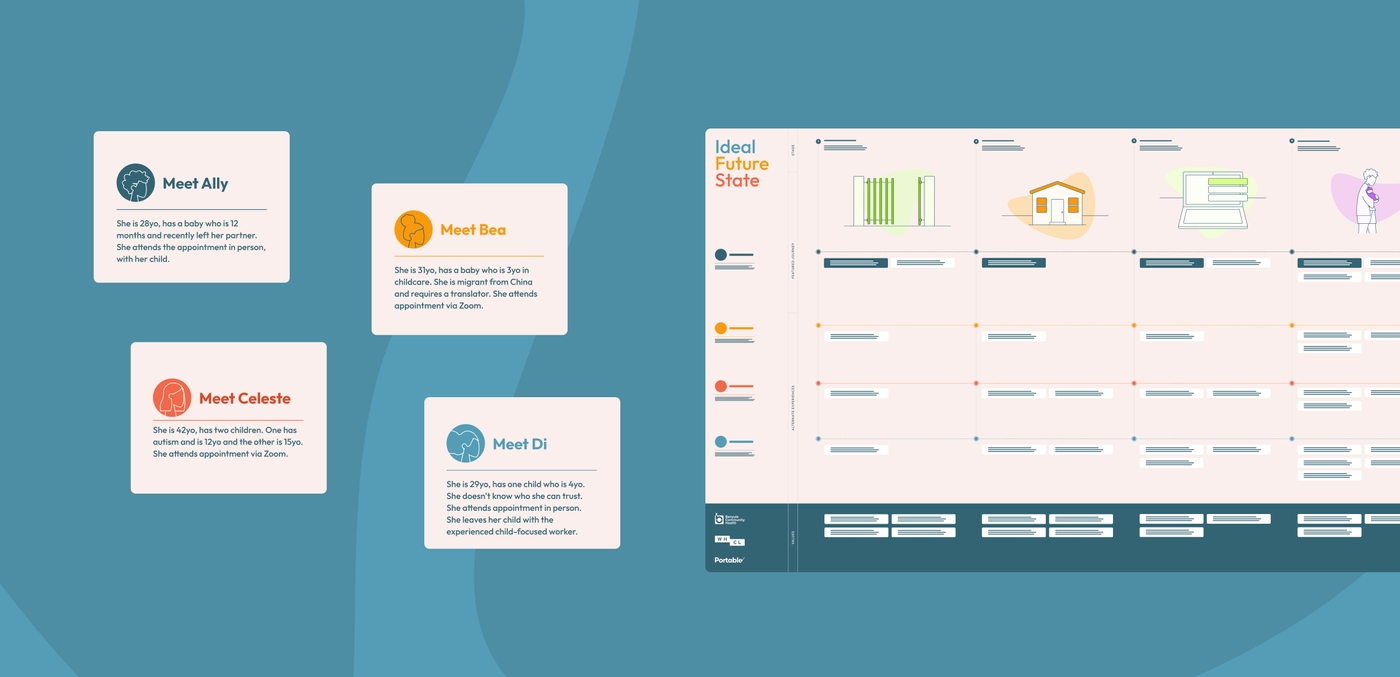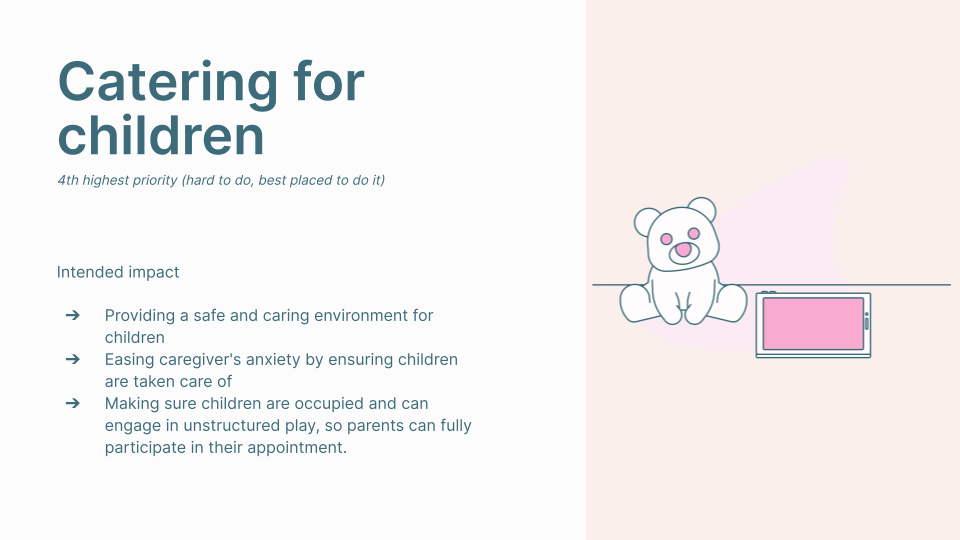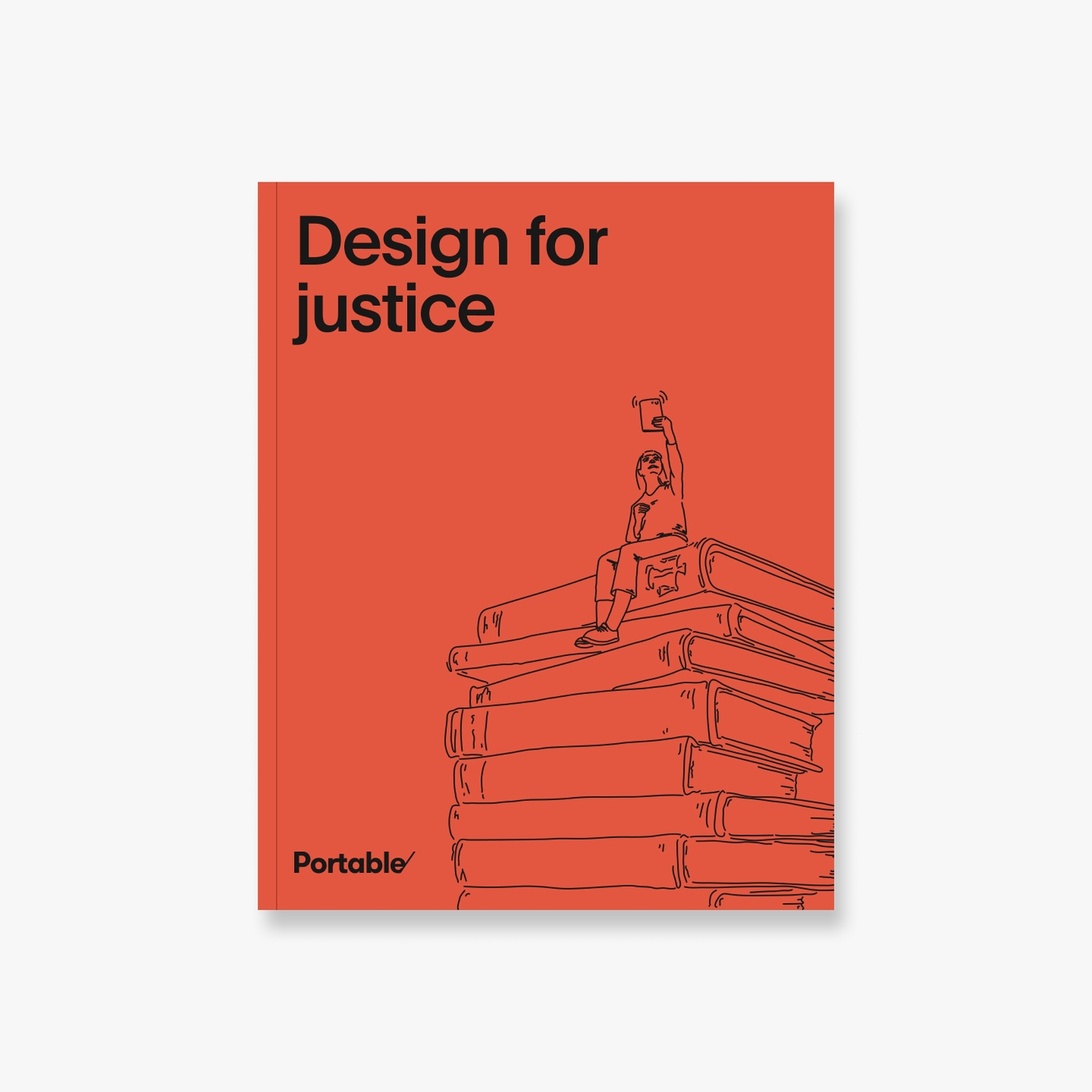West Heidelberg Community Legal, a program of Banyule Community Health, was established in 1975. West Heidelberg Community Legal is one of Australia’s longest running health justice partnerships. Their dedicated team provides free legal services to some of the most vulnerable and marginalised residents of Banyule. They are an accredited community legal centre, a member of the Victorian Federation of Community Legal Centres and the National Association of Community Legal Centres.
In 2019, West Heidelberg Community Legal were granted funding from the Victorian Legal Services Board to carry out a service design project, called ‘Making Space,’ in order to explore how they could welcome children into the legal centre, and make their experience safe, nurturing and positive. They had identified that parents and carers were having difficulty concentrating during appointments, or may have to leave early because their child became unsettled. This led to the parents and carers becoming frustrated or embarrassed, and could potentially result in them failing to attend future appointments.
During extended lockdowns in Victoria as a result of the pandemic, West Heidelberg Community Legal decided to put the project on hold. In January 2022, Portable was re-engaged to look at this same problem but through a COVID-lens; what were the opportunities and challenges given the change of people’s expectations and experiences?
Portable’s work with other legal services like Fitzroy Legal Service, and Victim-survivors of family violence meant we were well positioned to take a deep dive into this problem space and extend the research into the impact of justice partnerships.

Design challenge
“The pandemic represents a pretty big change, and we can't ham-fist our way through the proper design,”
– Stephanie Price, Principal Lawyer, West Heidelberg Community Legal
Keen to find a solution that was beyond convenient, the team at West Heidelberg Community Legal wanted to re-examine how their clients' needs had changed as a result of the pandemic and how their service could respond appropriately.
Client engagement
We spoke to several clients.
- All were women with young children
- All had experienced family violence
- All had mobile phones, many of which were provided free by other services
- Some were migrants, who needed translation support
They all talked about being distressed while they were seeking legal advice and the challenges associated with having their children with them during appointments. Crucially, we spoke to clients who had interacted with West Heidelberg Community Legal remotely (over the phone/email) and in-person, a more regular occurrence as a result of repeated lockdowns in Victoria. This enabled us to further delve into the frustrations associated with these different modes of service delivery.
Research
Zooming out, in the West Heidelberg area, we also discovered that around 30% of children were turning up with developmental vulnerabilities (which was almost 4 times more than neighbouring suburbs). These children were starting school without skills such as holding a pen, being able to cooperate with others, follow instructions, make decisions and take turns.
How might we?
This presented an opportunity space for us and allowed us to define a how might question to shape our next stages: How might we welcome clients and their families into the legal service, and see their attendance as an opportunity, so that they have a safe, nurturing and positive experience?
Stakeholder engagement
West Heidelberg Community Legal had previously conducted research into their clients’ preferences prior to the pandemic and were aware about how these had shifted during the course of the pandemic.
We were also fortunate to engage the Early Childcare team at Banyule Community Health early on in the project, who had been conducting pioneering research into developmental disadvantage prior to us engaging them on this project. This cumulative work helped provide a strong foundation for us to take a deep dive into how to transform the service to put the needs of parents and children at the centre.
Co-design and synthesis
At the start of the project, we were focused on finding ways to improve the legal service and make adjustments so that clients and their children could have a better experience. As a result, our interviews with clients focused on their expectations and whether this aligned with their experience. This led to findings about the crucial role of referrals and so we made it a focus of our co-design workshop. We identified several new opportunities for improving how the wider Banyule Community Health service (the community health centre, where West Heidelberg Community Legal was based) could function. Introducing change at this much broader level will hopefully lead to improved experiences for clients at the more granular service level.
Exploring the problem space
We conducted a brief literature review to better understand health-justice partnerships and trauma-informed approaches to service delivery. We then visited Banyule Community Health in order to gain insight into the physical environment and service operations across the centre. With multiple services available under the one roof, this was a key opportunity to understand how referral pathways work.
It also presented an opportunity to engage staff members who were not formally part of our engagement activities. Whilst clients in health and community sectors may still be reluctant to engage face-to-face in the aftermath of strict COVID-19 restrictions, the in-person observation activity was considered invaluable to the success of the project. Shortly after, we conducted hour-long interviews with 8 former clients and 2 Banyule Community Health staff members to identify current challenges and future opportunities for the Making Space project.
Drawing out opportunities
This research was then synthesised and several themes emerged. A number of our interviewees also gave us suggested solutions (like having “bickies and fizzy drinks” available), that we recorded. We presented this information as key insights evidenced with quotes, observations or facts from our literature review. And then produced an ideal future journey map to visualise what we had learned about the client’s needs and the opportunities available.
We ran a workshop with staff members of the Community Legal Service team and the wider Banylue Community Health service to playback these insights to them. Using the Ideal Future State as a basis for discussion, we then generated further ideas and validated whether some of the suggested ideas were feasible.
Together, we co-designed a roadmap of activities that covered the resources required for each solution, the limitations and risks associated with each solution and the possible metrics of success. This exercise then influenced what solutions were prioritised.
Delivering value and thinking about what’s next
We packaged this prioritised list of solutions into an activity plan, in a format that would work for future stages of change management and implementation. The document built on the solutions outlined in the draft roadmap in order of priority, based on ease of implementation and relevance to the project outcomes. It provided the team with a recommended sequence of activities, the resources required, and any considerations for carrying out each suggested activity. The sequence of activities was based on our understanding of what would deliver the most benefit and take the least amount of effort.

Outcomes
As a result of this project, West Heidelberg Community Legal now has an evidence-backed plan to make space for parents seeking legal advice and find opportunities for their children to engage in positive developmental-based activities.
Before a new model is introduced, several interim solutions that were generated by the clients themselves, have the potential to deliver immense value. These were validated by the Community Legal Service team and many are due to be introduced shortly.
Reflections
Stephanie Price, Principal Lawyer, West Heidelberg Community Legal
“We had been sitting with this problem for a number of years. Working with Portable on this project helped us move quickly into the solution space.
The design process they led produced some unique and powerful insights into our clients’ experience of seeking and receiving legal help while juggling caring responsibilities. Regular engagement between our team and theirs ensured that project deliverables were tailored to our needs.”
Emily MacLoud, Design Strategist, Portable
“West Heidelberg Community Legal is a pioneer in envisioning a new model for delivering legal services in collaboration with early childcare to make it easier for parents to access legal advice (without distraction) and offer their children opportunities to engage in rich, developmental-based activity.
Working with West Heidelberg Community Legal highlighted the potential for services to deliver quick wins, whilst remaining focused on addressing their clients key problems.”
Project team
Tom Miller - Producer
Luke Thomas - Senior Legal Designer
Emily MacLoud - Design Strategist
Alexandre Lekic - Experience Designer
Joanne Osbourne-Taylor - Lead Design Strategist
Get your copy of our design for justice report
